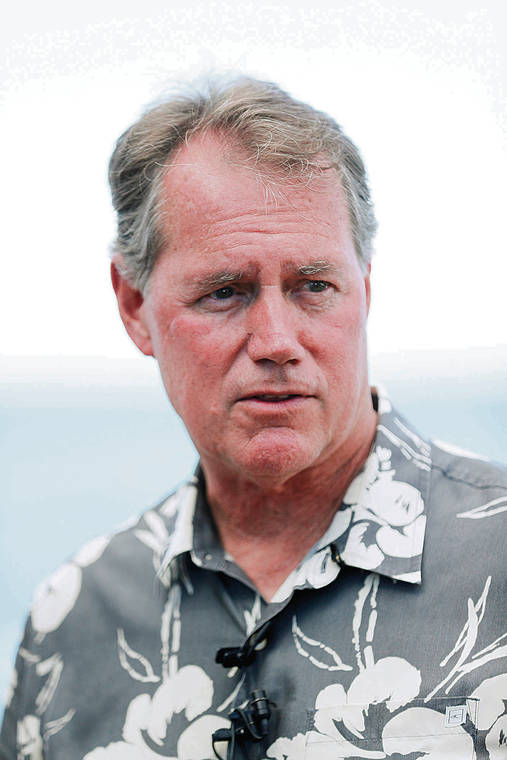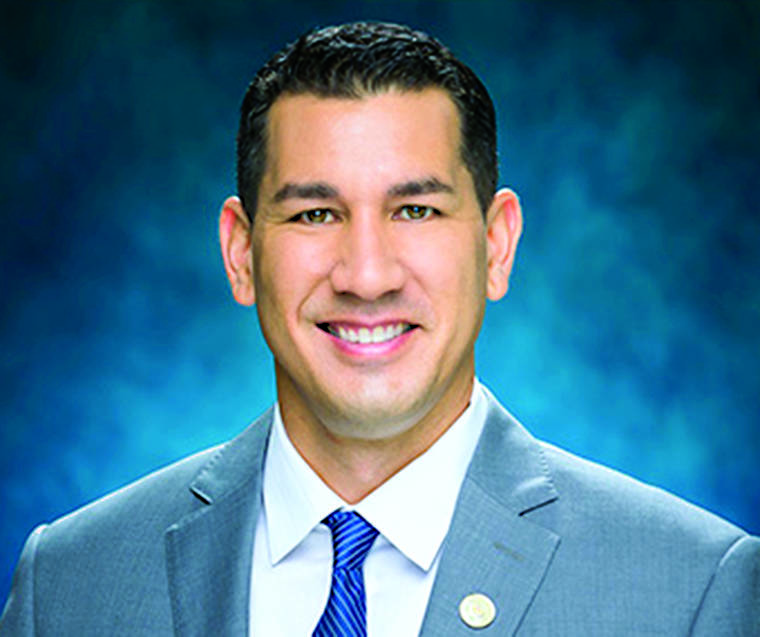The response to COVID-19 is a priority for Hawaii’s congressmen as they prepare for the start of the 117th Congress in January.
District 1 U.S. Rep. Ed Case and District 2 Rep.-elect Kai Kahele of Hilo — who last week was elected to the seat currently occupied by U.S. Rep. Tulsi Gabbard — spoke during a joint news conference Monday, where they addressed a number of issues, including the coronavirus and its impacts on Hawaii and last week’s election.
“Across our country, voters chose and democracy has prevailed,” Case said. “This election could not come at a more critical time for our country and for our Hawaii. COVID is getting worse across our country. Division and polarization is just as extreme as it was. Today in our country, unfortunately the results of that polarization are that many folks feel like winners, but many folks feel like losers, and that’s not the way it should be, but it is the way it is. We have to be honest about that.”
Case said there are critical issues in America beyond COVID-19, such as the economy.
“Our federal government must be at the forefront, and our Congress must produce for all Americans, and our delegation must produce for Hawaii.”
Case and Kahele, both Democrats, touted the importance of teamwork in their efforts and said they look forward to working with fellow Democrats U.S. Sens. Mazie Hirono and Brian Schatz.
“Kai and I share much of our own history and heritage,” Case said. “We’re both very, very proud Hilo boys. … We have a shared upbringing, which give us, I think, the same appreciation for special people and places of Hawaii, and I think we have shared values that we grew up with and carry with us.
“Of course, for any delegation, for any team, that’s a great foundation to build on — shared values, shared vision, shared backgrounds.”
Kahele said he’s looking to strengthen and help position Hawaii’s delegation for success.
“We need the best team in Washington, D.C., right now to help Hawaii navigate through the economic and health crisis that the coronavirus has laid bare here in Hawaii,” Kahele said.
“I can’t wait to bring my unique perspective of being a neighbor island resident to the delegation and to be that voice for the neighbor island communities that have suffered greatly because of COVID-19 and the coronavirus,” he said.
When asked about the prospect of a new COVID-19 relief package, Case noted that the president and the U.S. House and Senate will remain the same until January.
“… I don’t want to rule it out, (but) I guess I’m not going to say I’m optimistic about it because I thought one should have been enacted a long, long time ago,” he said. “I felt the compelling needs out there in the rest of the country would lead us of all stripes in Washington, D.C., to reach an actual compromise.”
As the end of the year nears, Case said needs have only worsened throughout the country.
“So, I think it’s a distinct possibility we could pull something off, although it’s still the same overall political environment and so it would have to be, at the end of the day, a compromise package.”
Case said any new federal aid package should focus on five areas: assistance to businesses, especially small businesses; assistance to state and local governments to handle discretionary needs; direct impact payments to families in need; unemployment; and the health care system.
And if legislators need to further address relief funding during President-elect Joe Biden’s presidency, Case said lawmakers should do that, too.
“I don’t think we’re going to get out of COVID-19 with just one more emergency assistance package,” he said. “I think it’s going to take more for us to get all the way through this incredible crisis.”
Kahele agreed that any relief deals should focus on the five areas mentioned by Case, but said any new legislation should ensure county governments and local municipalities get direct funding.
According to Kahele, the state of Hawaii and the City and County of Honolulu received large allocations of federal coronavirus relief money, and Maui received a little.
But Kauai, Hawaii Island and, largely, Maui had to rely on appropriations from Gov. David Ige.
“I would like to make sure that we get direct money from the federal government to the other counties, and the other counties are not left at the table or having to negotiate with the governor on how much they get,” Kahele said. “I think that is really important and critical in a new bill.”
Kahele also said an infrastructure package is needed.
“At the same time, I’m looking forward to a Biden administration that starts at the top, that has a consistent voice for the country in how to deal with the coronavirus and a (U.S. Centers for Disease Control) and Department of Health that can provide clear guidance to the states in what we need to do to make sure that the health and safety and welfare of the people of Hawaii and our country are first and foremost,” Kahele said. “It’s obvious that that hasn’t happened, and we have a surge in coronavirus cases happening all across the country.
“Even here in Hawaii, our numbers are back to over 100 (cases) a day… ,” he continued. “Until we have a tested and … FDA-approved vaccine that can be distributed, it’s going to be a lot of hard times ahead for us. Things like a national mask mandate, more protective measures that we can do for our community, and equipment that we can provide is going to be absolutely essential to minimize COVID-19.”
After COVID-19, Case said his priority is being able to again serve on the House Appropriations Committee to help Hawaii and the country get the funding it needs.
Kahele said he’d like to serve on the Committee on Transportation and Infrastructure, as well as the Agriculture Committee to help diversify Hawaii’s economy.
The pandemic has “severely exposed many, many deep economic issues that Hawaii has and the vulnerability that we have,” he said.
Agriculture, Kahele believes, is a key part of Hawaii’s success.
“This is not anything new,” he said. “Many people (who) have come before have said the exact same thing, but we just haven’t ever done it because we fall back to tourism and the military.”
A majority of all agriculture in Hawaii comes from District 2, Kahele said.
“(There is) so much opportunity there. I really want to help and be a member of Congress for Hawaii that just grabs the bull by the horns and just is able to take agriculture to a whole other level in the state.”
Email Stephanie Salmons at ssalmons@hawaiitribune-herald.com.









